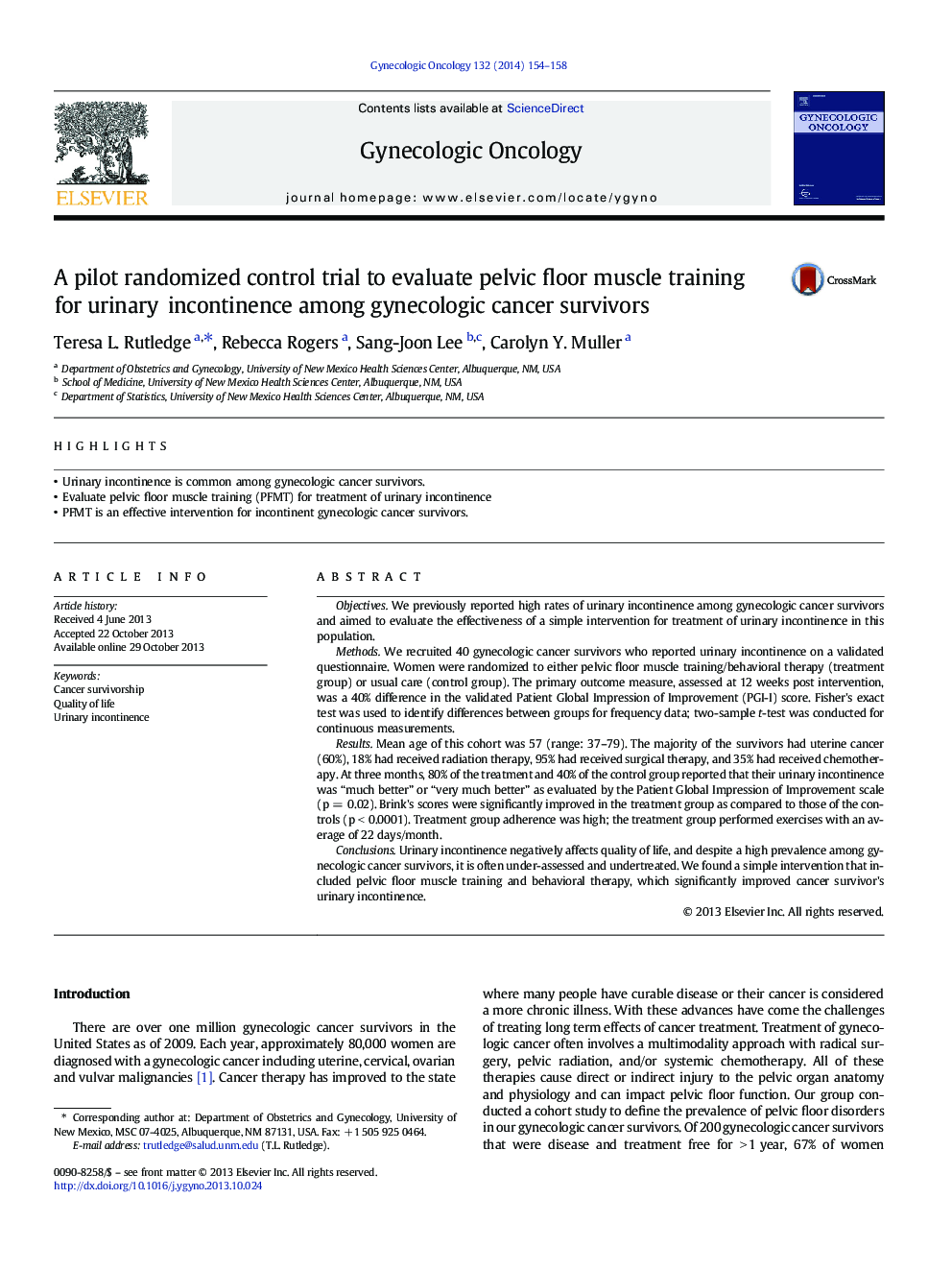| Article ID | Journal | Published Year | Pages | File Type |
|---|---|---|---|---|
| 3942821 | Gynecologic Oncology | 2014 | 5 Pages |
•Urinary incontinence is common among gynecologic cancer survivors.•Evaluate pelvic floor muscle training (PFMT) for treatment of urinary incontinence•PFMT is an effective intervention for incontinent gynecologic cancer survivors.
ObjectivesWe previously reported high rates of urinary incontinence among gynecologic cancer survivors and aimed to evaluate the effectiveness of a simple intervention for treatment of urinary incontinence in this population.MethodsWe recruited 40 gynecologic cancer survivors who reported urinary incontinence on a validated questionnaire. Women were randomized to either pelvic floor muscle training/behavioral therapy (treatment group) or usual care (control group). The primary outcome measure, assessed at 12 weeks post intervention, was a 40% difference in the validated Patient Global Impression of Improvement (PGI-I) score. Fisher's exact test was used to identify differences between groups for frequency data; two-sample t-test was conducted for continuous measurements.ResultsMean age of this cohort was 57 (range: 37–79). The majority of the survivors had uterine cancer (60%), 18% had received radiation therapy, 95% had received surgical therapy, and 35% had received chemotherapy. At three months, 80% of the treatment and 40% of the control group reported that their urinary incontinence was “much better” or “very much better” as evaluated by the Patient Global Impression of Improvement scale (p = 0.02). Brink's scores were significantly improved in the treatment group as compared to those of the controls (p < 0.0001). Treatment group adherence was high; the treatment group performed exercises with an average of 22 days/month.ConclusionsUrinary incontinence negatively affects quality of life, and despite a high prevalence among gynecologic cancer survivors, it is often under-assessed and undertreated. We found a simple intervention that included pelvic floor muscle training and behavioral therapy, which significantly improved cancer survivor's urinary incontinence.
